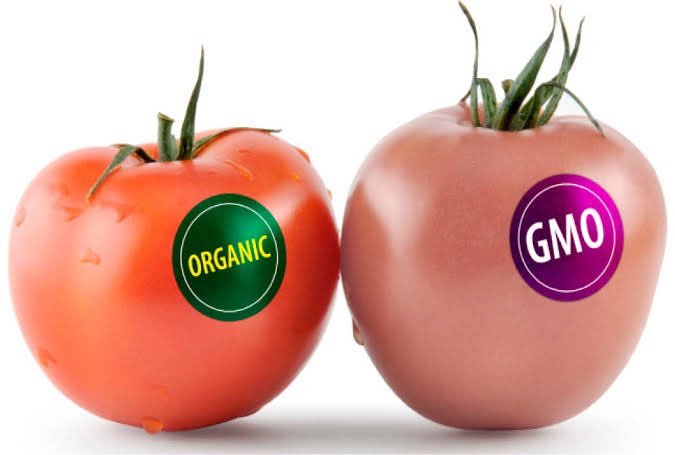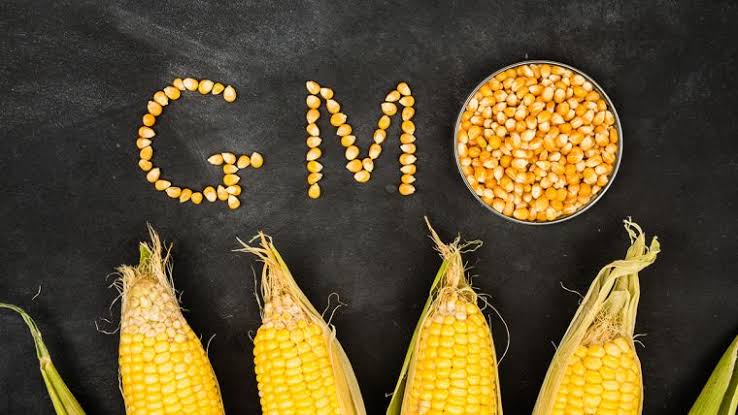The GMO global debate: The promises, perils in food, science

Photo illustrating the difference between organic foods and GMOs. Photo Credit- dietbloom/X
In the ever-evolving landscape of agricultural technology, Genetically Modified Organism- GMO have emerged as a double-edged sword, promising solutions to global food security while simultaneously raising alarms about potential health, environmental, and socio-economic risks. The recent discourse on social media, particularly the posts by @princessluna237 and @dietbloom, covers this tension, offering a sample of the broader global debate. As we navigate this complex terrain, it is imperative to critically assess the promises and perils of GMOs, grounded in evidence and informed by diverse perspectives.
Perhaps I begin this piece properly with the criticism prohibiting the use of GMOs. @princessluna237’s post is a vehement critique of GMOs, framing them as a covert strategy to undermine African agriculture under the guise of philanthropy. The author argues that GMO seeds, patented and engineered to dominate local varieties, pose a existential threat to farmers’ autonomy and food sovereignty. This perspective is not without merit. The patenting of GMO seeds by multinational corporations creates a dependency cycle, where farmers are compelled to purchase new seeds annually, disrupting traditional farming practices that rely on seed saving and replanting. This model, as @princessluna237 points out, has led to dire consequences in regions like India, where the introduction of GMO crops has been linked to farmer suicides due to unsustainable debt cycles. The post also highlights the environmental risks, such as the potential eradication of indigenous breeds and the ecological disruption caused by herbicides and pesticides integral to GMO cultivation. These concerns are similar in the global context, where countries like Germany, France, and Russia have imposed bans on GMO foods, citing precautionary principles and unresolved health risks.
RELATED STORIES
9 tips to spot fake products amid widespread unapproved drinks, food items in Nigeria
Climate change: A growing threat to Nigeria’s agricultural sector
On the contrary, @dietbloom’s post offers a counter-narrative, emphasizing the scientific consensus on the safety of GMOs and critiquing the emotional and often misinformed opposition to them. The author argues that the fear of GMOs is disproportionate to the evidence, pointing out that extensive studies, including those reviewed by regulatory bodies like the FDA and WHO, have found no adverse health effects from GMO consumption. This perspective aligns with broader scientific literature, such as the 2016 National Academy of Sciences report, which concluded that GMO foods are as safe as their non-GMO counterparts. @dietbloom also underscores the potential benefits of GMOs, such as increased yield, reduced pesticide use, and enhanced nutritional content, which are crucial for addressing global food insecurity, especially in the face of climate change. The post challenges the notion that GMO opposition is purely rational, suggesting that it is often driven by misinformation and a romanticized view of traditional farming.
However, the dichotomy presented by these posts reveals a deeper issue: the lack of long-term, independent studies on the health impacts of GMOs. While short-term studies and regulatory approvals provide a baseline of safety, the absence of comprehensive, multi-generational research leaves room for doubt. @princessluna237’s concern about the potential for GMOs to cause allergenicity, antibiotic resistance, and other health issues is not unfounded, given the precautionary stance taken by many developed nations. The World Health Organization’s guidelines on GMO safety, for instance, acknowledge the need for ongoing monitoring and research, particularly as new genetic engineering techniques like CRISPR emerge. This gap in knowledge is fueled by the influence of industry funding on research, which can bias outcomes and undermine public trust.
Moreover, the socio-economic implications of GMOs cannot be overlooked. @princessluna237’s post raises a critical point about the role of figures like Bill Gates in promoting GMOs in Africa, questioning the motives behind such initiatives. The historical context of colonial exploitation and the current dynamics of neo-colonialism lend credence to the fear that GMOs could be a tool for corporate control over African agriculture. The concentration of GMO seed ownership in the hands of a few multinational corporations, as noted in the post, poses a risk to biodiversity and food security, particularly in regions where local varieties are already under threat. This concern is supported by studies, such as those published in Frontiers in Plant Science, which discuss the potential for GMOs to disrupt ecological balances and reduce genetic diversity.
On the other hand, @dietbloom’s defense of GMOs as a solution to food insecurity is compelling, especially in the context of Africa’s growing population and changing climate. The potential for GMO crops to withstand droughts, pests, and diseases could indeed be a game-changer for subsistence farmers. However, the implementation of GMO technology must be accompanied by strict regulatory frameworks and community engagement to ensure that benefits are equitably distributed and risks are mitigated. The failure to do so, as seen in the Indian case, can lead to disastrous outcomes.
RELATED STORY
Cold fronts disrupt crops—here’s how SA farmers can adapt
The global framework of GMO policies further complicates the picture. The bans in Europe and other regions, as @princessluna237 mentions, reflect a precautionary approach that prioritizes potential risks over perceived benefits. In contrast, the United States’ more permissive stance, as highlighted by @dietbloom, is based on a risk-benefit analysis that favors innovation. This divergence underscores the need for a nuanced, context-specific approach to GMO regulation, one that considers cultural, economic, and environmental factors.
So much is left to explore on the controversy surrounding GMO and the advancement in food science but it wise to draw the curtain close. In conclusion, the GMO debate, as framed by @princessluna237 and @dietbloom, is a microcosm of a larger global conversation that balances promise against peril. While GMOs offer potential solutions to pressing challenges like food security and climate resilience, they also pose significant risks to health, environment, and socio-economic structures. The lack of long-term studies, the influence of corporate interests, and the historical context of agricultural exploitation in Africa demand a cautious approach. As we move forward, it is crucial to foster transparent, independent research, engage diverse stakeholders, and prioritize the voices of those most affected by these technologies. Only then can we hope to harness the benefits of GMOs while safeguarding against their risks, ensuring that the future of food is both sustainable and just.




